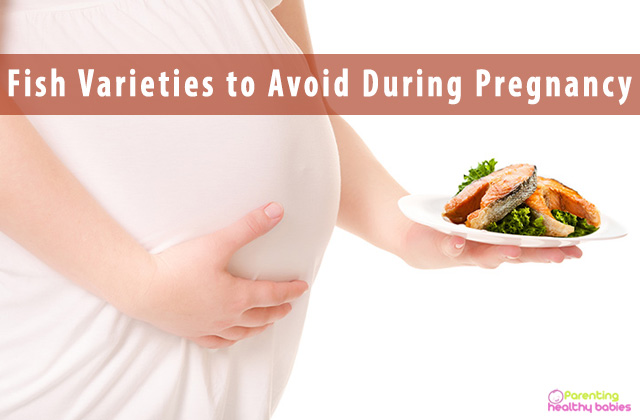There are many foods that are not safe for the fetus during pregnancy and fish is one of them because in some cases it could be a threat. Many fish are prohibited in pregnancy. The pregnant woman must take care of her diet. Knowing what the prohibited and allowed species are will help prevent consumption and avoid unnecessary risks to the baby’s health.
Mercury is a heavy metal that accumulates in the body and cannot be eliminated. In the case of the embryo or fetus, it can cause alterations in the development of the central nervous system that can range from mild cognitive disorder and mental retardation to low IQ or serious motor problems.
Fish During Pregnancy: 5 Kinds of Fish Varieties that Can Be Dangerous
Eating fish in pregnancy, especially in the first trimester, can produce a dangerous increase in mercury. It is necessary for the mother to know which fish are more prone to have high levels of mercury and which are potentially dangerous if consumed frequently.
When you are pregnant, you are more sensitive to listeriosis because this infection is very dangerous for your baby. It is for this reason that you should not eat raw or smoked fish during your pregnancy.
We must avoid the consumption of these fish, for their content of dangerous substances in some cases, or their danger of extinction in others.
Tuna fish
Babies exposed to mercury in utero can suffer brain damage as well as hearing or vision problems. Therefore, pregnant women should try to avoid tuna consumption during pregnancy. Not only fresh tuna but also canned tuna should be avoided. The water where it is caught is increasingly contaminated with mercury, and fish raised or caught in these waters naturally tend to accumulate mercury in their tissues.
American eel
As we know that balanced and healthy diet is the key to a healthy pregnancy. American Eel which is also known as a yellow or silver eel, this fish, often ends up in sushi dishes. It is highly contaminated with PCBs and mercury. Fishing also suffers from a certain degree of pollution and overexploitation.
If you like the taste of the eel, opt for the Atlantic or the Pacific squid rather than American Eel.
Lampreys
Lampreys also contain fairly high levels of mercury and are not recommended during pregnancy. They also have a high rate of contamination that adversely affects your fertility to a great extent and may also lead to serious complications.
Oysters
During pregnancy, avoid oysters, mussels, and all raw shellfish if possible. The risk is that they are contaminated by bacteria and viruses that can lead to food poisoning. You are more fragile to this during pregnancy.
If you suffer from food poisoning while you are pregnant, your baby will not suffer, but you may be very sick.
Caviar
Beluga caviar is subjected to overfishing. Moreover, they live in dam constructed contaminated water, that makes them unsuitable for consumption.
It should be known that mercury in its methylated form (methylmercury) does not affect the mother but presents a real danger to the fetus. It is the brain that is targeted primarily: indeed the central nervous system of the fetus is particularly sensitive to the toxic action of methylmercury.
According to all clinical studies, neurological impairment in children exposed during pregnancy to methylmercury results in lower performance in tests that explore neuro-behavioral development. It is known that methylmercury is a toxic drug and that its consumption is progressing, it remains difficult to link any pathology to a precise dose.
Pregnant women can eat up to 340 grams of fish per week, that is about 2-3 times per week. And always, the most advisable thing is to try to choose fish with low mercury levels such as salmon, cod, tilapia or albacore tuna. Pregnant women are generally advised to eat fish at least twice a week. But that doesn’t mean that you can or you are allowed to eat just any type of fish.
Also, remember to take these steps, even with the recommended fish. The refrigerator, which stores food and cooking preparations with a relatively short shelf-life, is the ideal place for a food-borne infection. It is essential to pack the fish and keep them in the coldest zone, located at the top. It is recommended to separate raw and cooked fish and to defrost food in the refrigerator rather than at room temperature (to maintain the cold chain).
Also, to maintain the quality of the fish, it is recommended to:
- Use an insulated bag for transport to the home
- Empty your fish immediately or ask your fishmonger to do so
- Store these foods in the coldest part of your refrigerator between 0 and 4 ° C
- Consume them preferably the day of the purchase, or within 48 hours.
http://americanpregnancy.org/pregnancy-health/mercury-levels-in-fish/
https://www.womenshealthmag.com/food/g19986168/most-contaminated-fish/?slide=1













